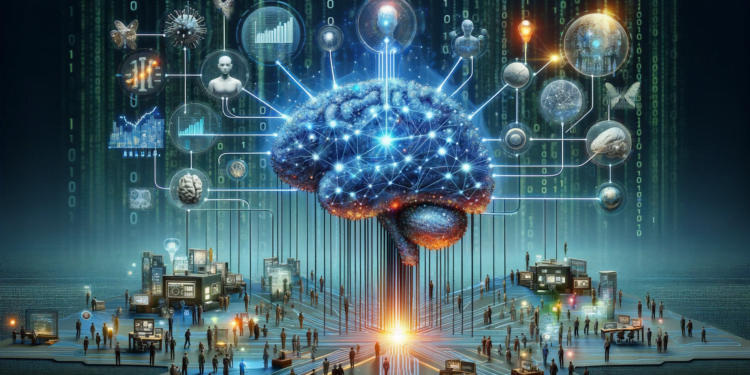Artificial Intelligence (AI) has become integrated into various areas of our lives, offering advanced solutions ranging from product recommendations to medical diagnostics. However, with the increasing use of AI systems in critical decision-making, it’s imperative to understand and address the inherent biases that may emerge during their development and operation. This article breaks down key concepts and provides an in-depth look at biases in AI, also presenting essential perspectives for mitigating their effects.
Bias: The Cornerstone of the Debate in AI
The term “bias” in AI refers to the systematic and disproportionate tendency of algorithms to favor certain groups or outcomes over others. Biases can reflect historical or social prejudices, inaccuracies in data, or the way algorithms are trained. Understanding these biases is crucial for developing fair and reliable AI systems.
Types of Bias in AI
Data Bias:
Arises when the dataset used to train an AI system is not representative of the population or phenomenon it intends to model. This includes the over- or underrepresentation of certain characteristics in the data.
Prejudice Bias:
Manifests when pre-existing human biases are reflected in the training data, causing the AI to learn and perpetuate these same biases.
Confirmation Bias:
Occurs when AI is designed or trained in a way that favors information confirming the pre-existing beliefs or hypotheses of the developers.
Measurement Bias:
Happens when there are errors in measuring the variables of interest. Algorithms developed from these flawed measurements can produce biased outcomes.
Algorithmic Bias:
This type of bias refers to the design decisions and machine learning methods that favor certain outcomes over others.
Causes and Effects of Bias in AI
Causes of Bias:
The origins of bias in AI can be traced back to various sources. One of the reasons is data collection: if the gathered data does not adequately cover the diversity of the target group, the AI will have a distorted perception. The decisions made by engineers during the design stage and data preprocessing also impact the final outcome.
Effects of Bias:
The effects can be detrimental, from creating barriers in job recruitment and unfair judicial decisions to the propagation of stereotypes in advertising and media. Bias can undermine trust in AI systems and cause economic, social, and moral harm.
Strategies for Mitigating Bias in AI
To counteract bias in AI, a multifaceted approach must be adopted:
Data Review and Cleansing:
It is critical to assess datasets for representativeness and fairness, eliminating pre-existing biases whenever possible. This may involve collecting additional data or removing certain biased data.
Inclusive Design:
Diversity and inclusion within AI development teams can provide multiple perspectives. A diverse team is more likely to identify and address potential biases.
Rigorous Testing and Ongoing Audits:
Implement comprehensive testing to assess bias and conduct regular audits of operating systems to detect and correct biases that may arise over time.
Transparency and Explainability:
AI systems should be transparent in their operations and decisions to allow for proper evaluation and understanding of how and why decisions are made.
Legislation and Regulations:
Laws and regulations can play a crucial role in enforcing fairness requirements and assessments for AI systems in critical sectors.
Long-Term Impact and Future Challenges
The issue of bias in AI is not just a technical challenge but also an ethical and social dilemma that requires ongoing reflection and action. As AI progresses, the methods for detecting and mitigating bias must also evolve. In the long run, the success of AI will depend on the ability of technology to operate fairly and equitably.
Conclusions
Bias in AI is a complex problem that affects the integrity and reliability of automated solutions. Understanding the different types and causes of bias is the first step towards creating fairer and more effective systems. Incorporating bias mitigation practices is key to the sustainable development of AI technologies that benefit the whole society.
In summary, this article has provided an in-depth insight into the issue, addressing both the detailed technical aspects and the broader considerations necessary for impartial and ethical AI. The task of eliminating bias is ongoing and multifactorial, requiring collaboration between developers, regulators, and users to ensure a future where AI is an instrument of equality and not division.






















